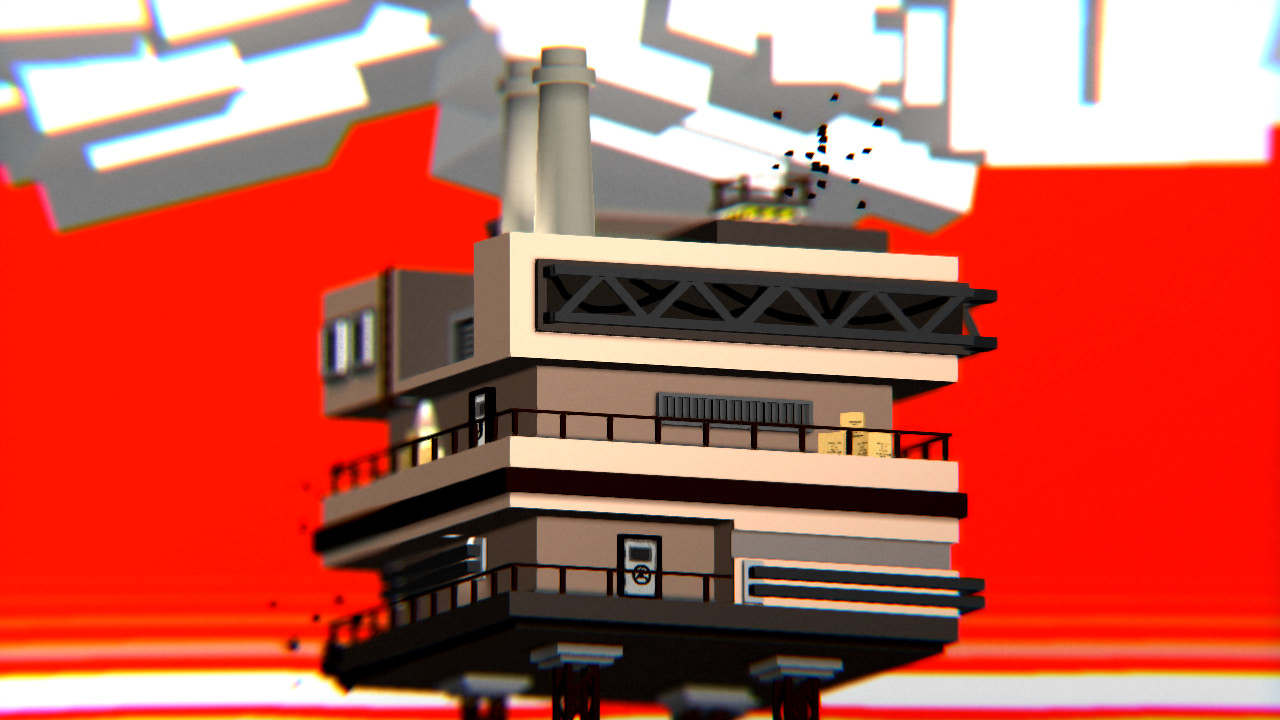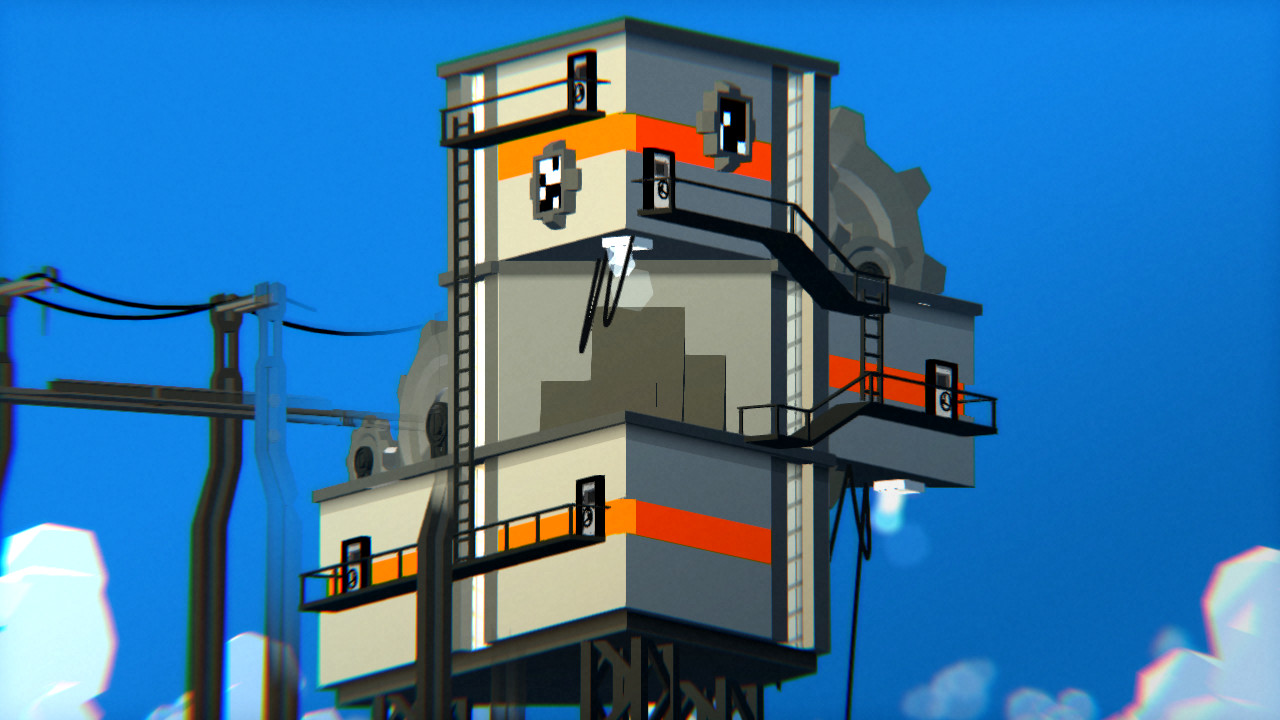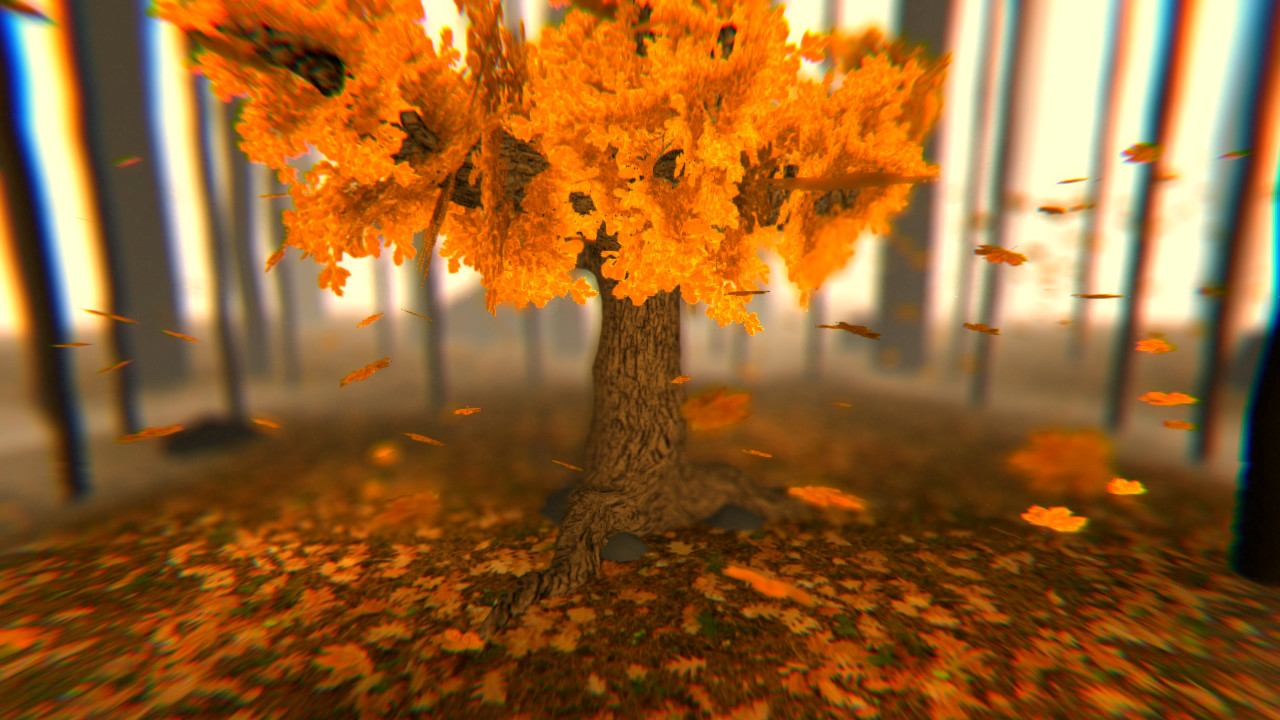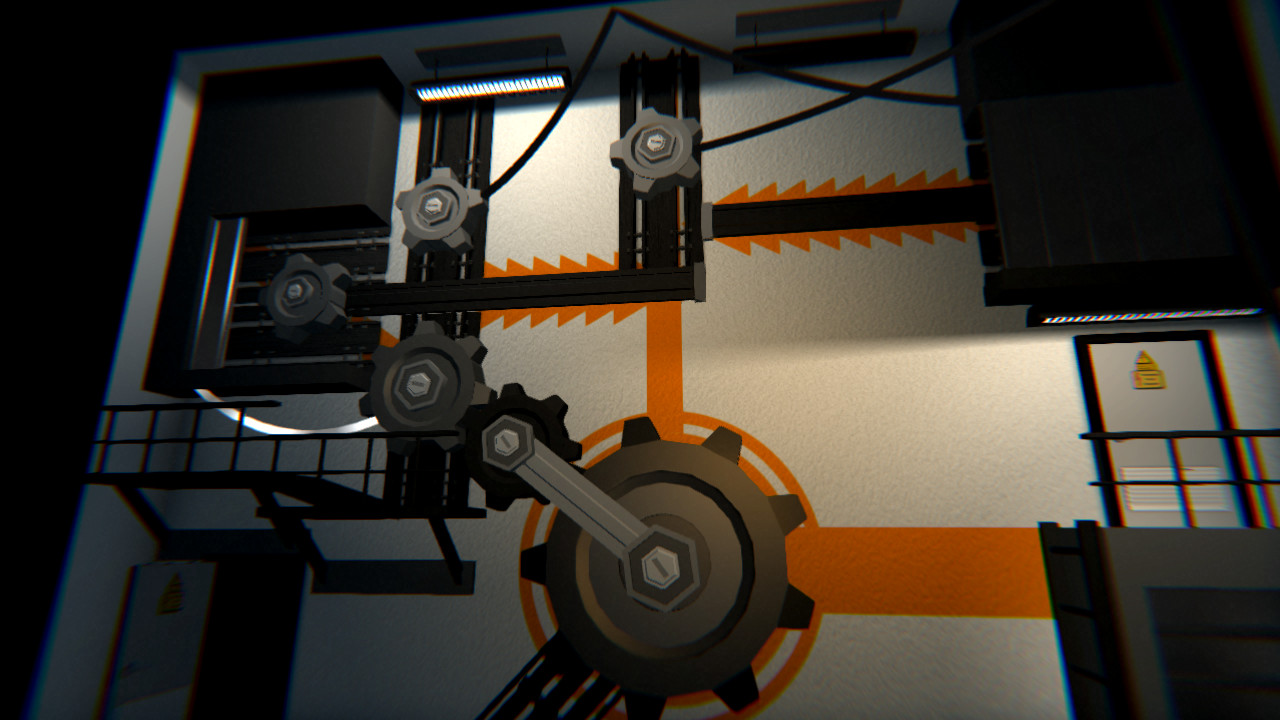Who would have thought that cassette radios or cassettes in general would have the role they do in video games? They often end up being the key object you need to find to trigger past events in games such as Gone Home, yet Small Radios, Big Televisions takes a different approach. It decides to not just take you to the past, but to a whole other world with a simple click of the tape into the tape deck.
Small Radios, Big Televisions was developed by Fire Face Corporation and was published by Adult Swim Games. It’s a First Person Puzzle game where you travel from building to building, gathering up tapes in order to find keys to unlock the next building.
The game is entirely based around this idea, and is mostly filled with you going in and out of rooms in a sort of disembodied fashion, as if you’re floating midair as you’re moving from room to room. It leaves a sort of disconnect to the world that you’re in, giving a player an immersed feel yet separate from the narrative itself. In this case it ends up working out, considering that we aren’t entirely sure what’s going on at first until you finish the first building. After this, you’re treated so some dialogue that slowly makes it clear just why all these building are out here in the middle of nowhere in the first place.
You’ll find that the game doesn’t tell you what’s going on outright as much as it implies it; the majority of the environments themselves tell a kind of story, especially with all of the graffiti and writing on the wall. Think of Portal’s Ratman, except more controlled at first and descending into full blown panic later. Something obviously happened here, but it leaves just enough to the imagination for the player to figure out.
The colors are very bright and vibrant, almost like pages out of a bright superhero comic book, which leads to a lovely tonal dissonance between what’s going on and where you’re at. It’s a little jarring at times, especially when the music gets slowed down and the environments start to crumble around you, yet there’s still this unsettling extreme friendliness to some of the environments despite the more dour grey building they tend to take place in.
Each new building leads you to a different sort of a puzzle that you need to solve, usually just with the mouse but sometimes the keyboard. Oftentimes, you’ll be treated to a sweeping shot of the different environments before being sucked right into it depending on the door that you choose. Some doors are locked or don’t appear at first, however, and it’s up to you to figure out where to go; most of the time this involves finding one of the cassettes. You’ll take a cassette and play it, before being transferred into a completely different world than the one you’re in now — a sort of pseudo paradise if you will, one that will loop forever if you let it.
While in here, you’re supposed to collect one of those keys, but sometimes you need to do something to the tape in order to find it, which involves more exploration and a larger variety of puzzles than just I Spy. There are things like small physics puzzles or water based puzzles (which are almost never fun, yet games keep putting them in any way for some bizarre reason), and each area has its own unique brand of puzzle that it slowly introduces you to before throwing you to the wolves. While they’re not always easy, like with a certain gear swinging puzzle requiring momentum to solve or a certain water pressure puzzle that requires a lot more turning and finagling than you’d expect, for the most part things try to seem straightforward.
What does hurt the game the most is its strange technical issues that pop up just enough for you to notice. You aren’t able to Alt-Tab in this game to check anything because if you do, the game will resize itself and you won’t be able to press escape. Checking on things on Steam is almost out of the question as well, because it will cause the game to lag or even crash.
There’s also a few framerate drops and times where during the cutscenes the audio cuts out for a brief moment; just a split second but still noticeable, and it just seems like poor audio mixing on the part of the developers. It doesn’t matter all that much considering those scenes are subtitled because they’re in gibberish, but it does smack you right out of the immersion. These are simple things that should have been caught that do slightly sour the experience overall.
Small Radios, Big Televisions is a solid experience that nonetheless isn’t for everyone. If you like games with big action and even bigger story, this game isn’t for you; if you like games that have some puzzles, with a story that leaves you thinking afterwards, then I’d give this game a try. It’s the sort of game that draws you in out of raw curiosity, and once you’ve started playing it’s actually hard to stop without feeling as though you want to know what happened to this world. Small Radios, Big Televisions might be small in scale but it’s large in impact.










Published: Feb 23, 2017 09:50 am